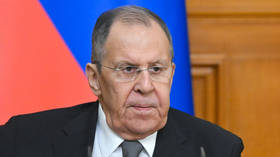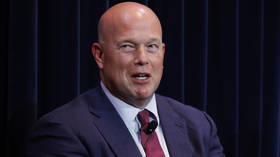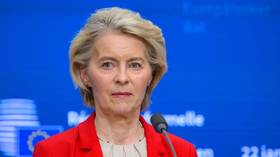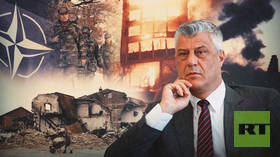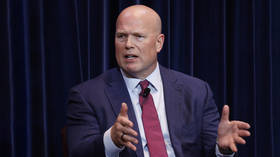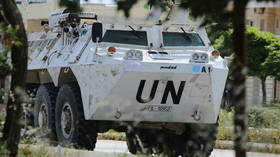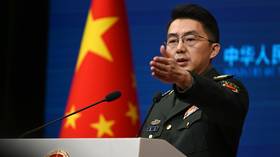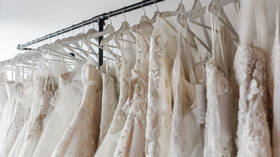‘Despite state of war’: Curfew lifted in Baghdad hours after deadly bombings
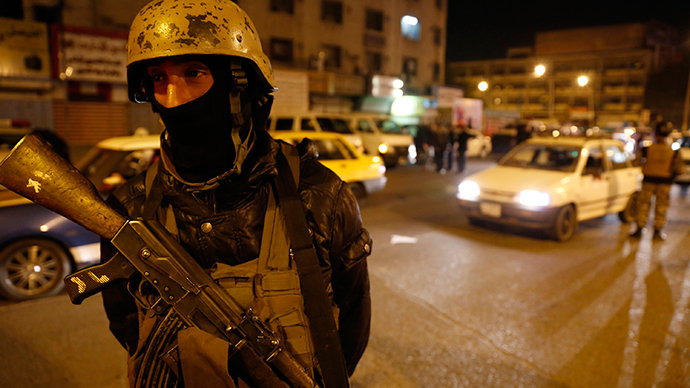
Residents in Baghdad celebrated their first curfew-free night in more than 10 years amid a heavy security presence. Just hours before, 40 people were killed in a series of blasts in the Iraqi capital.
Tahrir Square in Baghdad’s center was bustling with life after midnight on Sunday, with people playing music and waving Iraqi flags. And all over the city the streets were busy with flag flying from cars and motorcycles.
صور متفرقة من صفحات الاصدقاء. لمدينتنا الآن. احتفالا برفع الحظر عنها وعنا! ستعود ليالي بغداد <3 ستعود. pic.twitter.com/8w5sDo8X2Z
— aya mansour (@ayamansour12) February 7, 2015
The curfew from midnight till 5 am had been in place since 2004, as a measure to tackle the sectarian violence that escalated after the 2003 US-led invasion.
Reaction to the lifting of the curfew has been mixed. A shopper in the central Karrada district, interviewed by Reuters, believes it shows “that the country is somewhat safe."
Dancing in the streets of Baghdad: a curfew ends & the city is finally coming back to life pic.twitter.com/qBCT1a0C1Z
— Liz Sly (@LizSly) February 7, 2015
A shop owner in the Shourja district disagrees, saying, “you
can see that things aren’t as good as before. Bombings are coming
back."
On Saturday, several hours before the curfew was lifted, Baghdad
was rocked by a series of bombings that killed at least 40 people
and left more than 80 injured.
A suicide bomber in the New Baghdad area of the city carried out
the first and deadliest attack. Police confirmed that 22 people
were killed and at least 45 injured in that attack.
"The restaurant was full of young people, children and women
when the suicide bomber blew himself up," witness Mohamed
Saeed told AP. "Many got killed."
The second happened soon after near a popular market in central
Baghdad. At least 11 people were killed, according to police. Two
more bomb blasts killed four civilians and three soldiers.
1,431 civilians killed in #Iraq during January.
— Iraq Body Count (@iraqbodycount) February 1, 2015
The Islamic State (IS, formerly ISIS/ISIL) later claimed
responsibility for the first and deadliest of the attacks, saying
Shiites were the target, according to the SITE Intelligence
Group, a US-based terrorism monitor.
The extremist group has a third of Iraq under its control.
Nearly 17,000 civilians were killed in Iraq in 2014, Iraq Body
Count project estimated. The figure is double the death toll for
2013. The group tracking casualties in Iraq links the rise in the
number of deaths primarily to the IS activities.
Although the government announced a lower death toll of 15,000,
it still described 2014 as the deadliest year since 2007.
READ MORE:
Civilian death toll in Iraq doubles to 17,000 in 2014 'due to
rise of ISIS'
Iraq Body Count said Baghdad was the deadliest Iraqi city for
civilians, as 4,767 people died there in 2014.
However, this didn’t prevent Prime Minister Haider al-Abadi from
lifting the night curfew and reopening some of the blocked-off
streets to traffic.
Abadi’s office said the move was taken in order to return to
“normal life as much as possible, despite the existence of a
state of war."
He hasn’t yet commented on the Saturday attacks, but Interior
Ministry spokesman Brigadier General Saad Maan said he didn’t
believe the blasts were linked to the lifted curfew.


